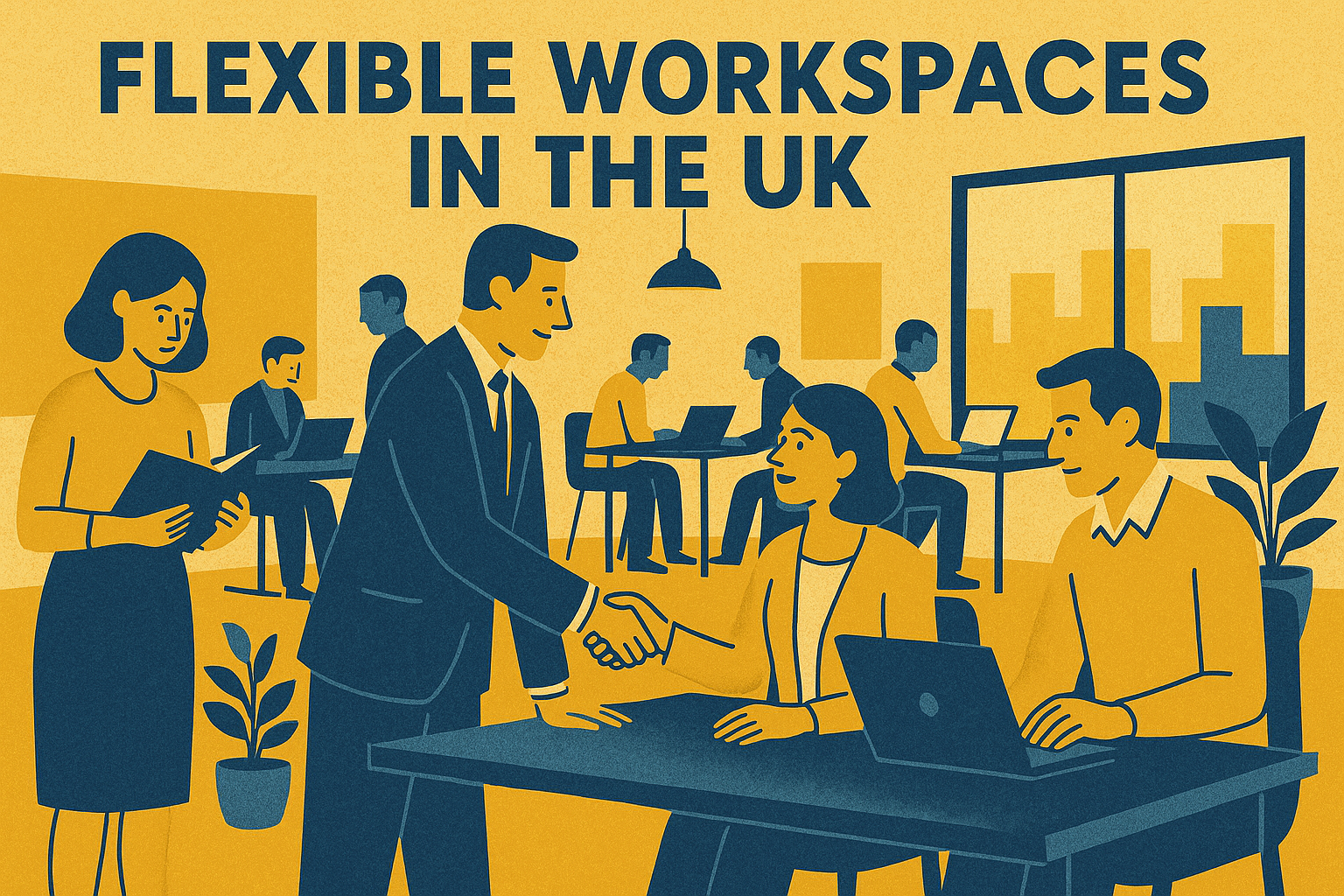Flexible workspaces have quietly become a cornerstone of the UK’s business landscape, offering serviced offices and coworking spaces on high streets, in business parks and in city centres. With economic growth a key government priority, including in the wake of an agreement aiming to herald a new chapter of collaboration between the UK and EU, it’s worth taking the time to spotlight the role these spaces play in driving business resilience, adaptability and wider economic growth.
A broader shift —
The flexible workspace sector has evolved from something of a niche offering to a popular solution for businesses of all shapes and sizes. In 2024, nearly 40% of flexible workspaces across the UK reported occupancy rates exceeding 90%, with demand growing steadily beyond the major urban centres.
This shift reflects a broader trend toward greater adaptability, cost-efficiency and community. For the UK’s 5.5 million small and medium-sized enterprises, flexible workspaces offer more than just a desk; they provide freedom from long-term leases, easier management of costs, and the ability to scale in response to political and economic change.
More than just space —
Modern flexible workspaces are designed at their core to support business success. There are those that bring together specific types of businesses, for example technology. Some offer access to services such as mentoring or funding advice. It is common in flexible workspaces to find organised networking opportunities. Increasingly, these spaces are also prioritising sustainability and employee wellbeing, focuses that we’ve seen come to the fore in recent years.

Flexible workspace and hybrid working in the post-pandemic world have proved the perfect partners. Companies are increasingly wanting staff working together for 3 or 4 days a week, recognising the benefits for productivity, collaboration and culture. Providing a modern working environment, often with added benefits of amenities such as free coffee, gyms and roof terraces can help to encourage people back into the office. The ability to increase desk numbers quickly and easily, or booking meeting rooms for a day, also makes it easier to adapt to changing on-site employee numbers.
Supporting communities —
The benefits of flexible workspaces aren’t exclusive to individual businesses. They are contributing to the regeneration of high streets and supporting local employment. From small coworking spaces above town centre coffee shops, to the conversion of former city centre department stores to large flexible workspaces, they are bringing life to areas that have seen a decline in footfall through the shift to online shopping.
By providing professional environments and support networks, they are also helping to level the playing field for entrepreneurs from all backgrounds, which is key for UK economic growth. In shared workspaces, accountants and graphic designers work alongside physiotherapists and solicitors, forming an instant business community that can offer mutual benefits.
Looking Ahead —
In turbulent economic times globally, flexible workspaces are already playing a big part in helping businesses stay resilient, and they’re well-placed to do even more.
As we look to strengthen economic ties across borders, it makes sense to back the kinds of spaces that help businesses grow from the ground up.
To make the most of this moment, the sector needs to be part of the bigger picture. That means recognising flexible workspaces as not just office space, but rather a key part of the infrastructure that helps UK businesses succeed.

Jane Sartin is Executive Director of the Flexible Space Association.




